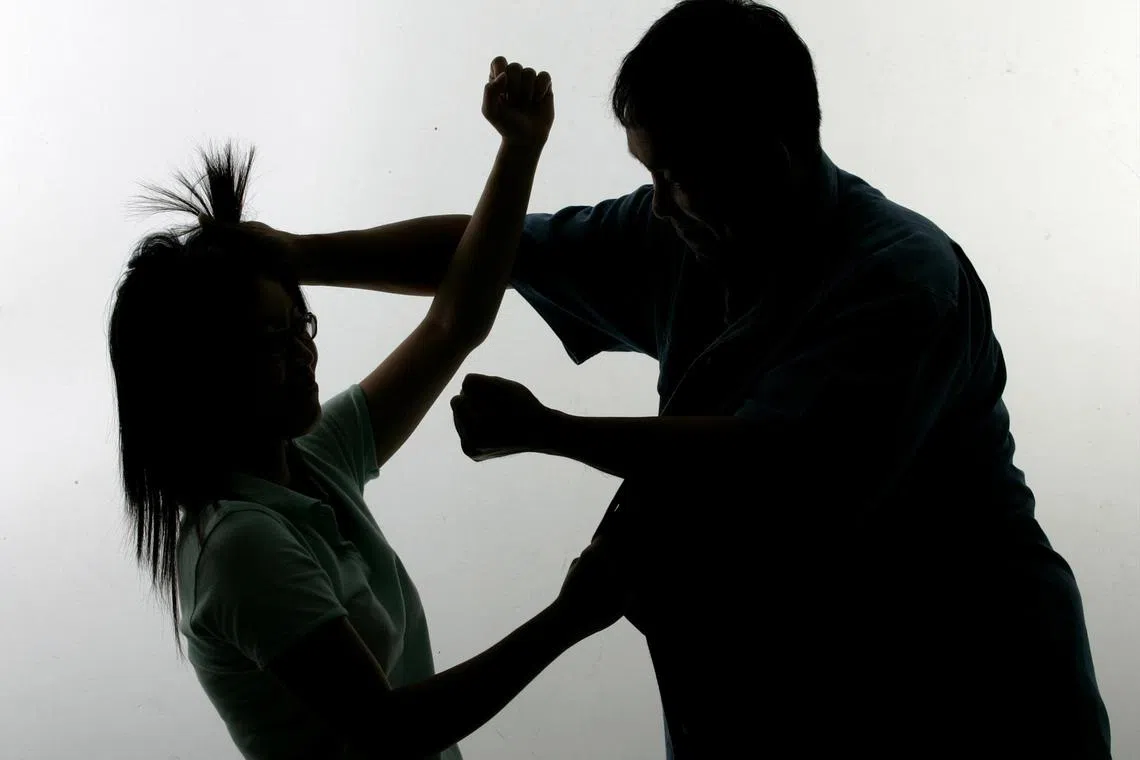What neighbours can do when domestic violence victims refuse help
Sign up now: Get ST's newsletters delivered to your inbox

Neighbours are encouraged to continue keeping a lookout for the family, and to call the police if the situation escalates.
PHOTO ILLUSTRATION: ST FILE
SINGAPORE - After receiving an anonymous call in 2016 about a case of suspected domestic violence, social workers from Touch Community Services visited the family in question.
As a non-enforcement unit, there was little they could do when the family denied anything was wrong and refused support.
They were not willing to share much about their situation, and there was no clear visual indication of harm.
As the social workers were walking away along the corridor, a hand shot out from the gate of a unit three doors down to stop them.
The woman said she was the anonymous caller and invited the team inside to give them more details about her concerns.
But the team could not follow-up with the affected family since they were unwilling to get support.
Mr Marcus Lim, head of Touch Family Support, said: “We assured (the caller) she could call us again should there be another incident. However, we have not received any more calls from her since.”
He said that for most families or victims of family violence, stepping forward to seek or accept help is a very difficult decision to make. “This is because the perpetrator is often someone the victim trusts, loves or depends on financially. So, some victims may choose to maintain the status quo instead of leaving or seeking help.
“When questioned, they may also deny being victims of family violence. When that happens, there is little that social workers or the authorities can do.”
He said that when this happens, neighbours are encouraged to continue keeping a lookout for the family.
They should call the police immediately if the situation escalates, or if they think the victim’s safety or life may be endangered.
Mr Lim added: “Neighbours could also check in regularly with the victims to provide support and build a trusting relationship with them. This is because victims are more likely to accept help or advice from someone they trust.”
When bystanders helped abuse victims
1. June 9, 2021
A man argued with his 67-year-old mother over a faulty drawer and assaulted her with a broomstick, leaving her hospitalised for 20 days.
He had been out drinking before he returned home with his girlfriend to the flat they shared with his mother.
Besides using a broomstick to hit her arms, he also kicked her stomach.
A neighbour who had heard the commotion called the police.
On Nov 8, 2022, the man was jailed for a year and a week.
2. 2015
A limousine driver saw his elderly neighbour being slapped daily over six months, but initially did not want to interfere in the family matter.
He then took a video of the frail-looking woman being slapped by her daughter.
The video went viral on Facebook, and a police report was lodged.
3) January 2018
A paralegal assaulted her Indonesian maid with a wooden scratcher, fracturing two of the helper’s fingers.
A neighbour heard her moaning in pain and suspected she was a victim of abuse, and called the police.
Her assailant was jailed for 10 months



